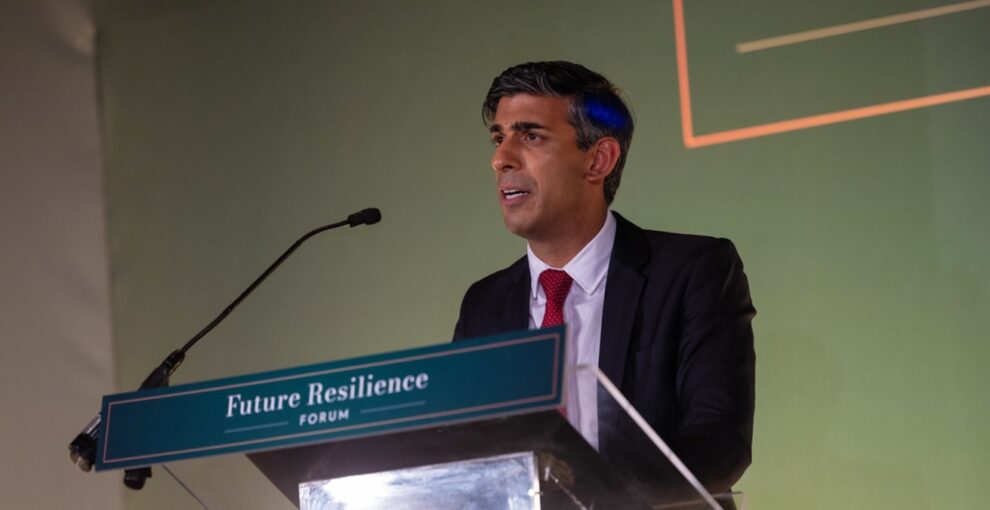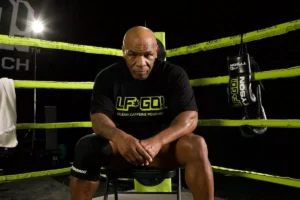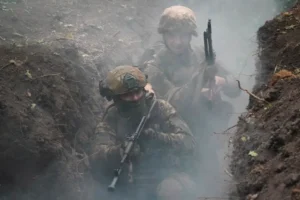The differences in party conferences between the Labour and Conservative parties in the United Kingdom recently has been as much about policy as behaviour. With Labour catching up, Rishi Sunak’s party will be getting worried.
Britons have just observed (or endured) the annual party conference season – ritualistic gatherings of the main political parties which bring together the party faithful to rally support for the policies that party officials, MPs, and ministers hope will win them the support of the electorate. Traditionally, they were colourful, week-long, affairs held in Britain’s seaside resorts. Memorable speeches and headline-grabbing gimmicks attracted international attention. I remember Lord Hailsham, then the Tory party chairman, emerging fully clothed from the chilly seas off Brighton beach waving a large clanging bell, to draw the attention of passers-by to the Conservative event. Such frivolity ended abruptly in 1984 when the IRA bombed the Grand Hotel, Brighton, in a failed attempt to kill Margaret Thatcher.
This year’s Tory conference was a shambles. On its very eve, the government decided to axe the uncompleted parts of the high-speed rail link between London and Manchester, seen as a plank of the so-called levelling up agenda for the north of England. Instead of confirming the decision, Sunak decided to withhold his formal announcement until his closing speech, generating a “Will he? Won’t he?” shadow over the entire conference.
Many of the discussions at the Tory party conference were non-events. One was the notion of building “15-minute cities” where every person in a community could get to a shop within a quarter of an hour without using a motor vehicle, which was introduced by the transport minister, Mark Harper. Harper suggested that local authorities may block cars from some shopping areas or restrict shopping to certain hours of the day. Challenged by BBC Radio 4’s PM he was unable to give details of the local authorities involved and what they proposed, leading the presenter, Evan Davis, to conclude there were no such threat. All designed, perhaps, to appeal to the strengthening right wing of the party?
Certainly, the right received a boost from the appearance of Liz Truss who came proclaiming the need for tax cuts and a return to “Tory values.” It was a short and impactful speech after which she was besieged by supporters seeking a selfie or an autograph. It was not clear whether the interest was due to her glitzy appearance, a desire for a brief moment with the shortest serving prime minister in British history, or a mix of the two. The net result was that the media focus that day was not on the conference floor but on the fringe event.
Then came Rishi Sunak. His initial message was clear: politics in Britain was a disgrace and had been so for the last thirty years, including the 13 years that the Tories have been in office, as he put it in this clip.
He spoke for just over one hour. He came up with some fresh proposals, but none could be regarded as radical. He plans to save substantial amounts of the National Health Service budget by increasing the legal age for buying cigarettes in England by one year every year, so that children who turn 14 this year will never legally be sold a cigarette. He also intends to alter the school leaving examination system with a new single Advanced British Standard examination to replace A levels and T levels, with more emphasis on maths and English, a move that will require the recruitment of thousands more teachers – but just when this will happen is unclear. He scrapped the completion of the HS2 railway project, replacing it with funding for hundreds of small schemes across the country involving roads as well as railways, though without any specific timescale.
Across in Liverpool at the Labour Party conference the mood was entirely different – confident, with a wide-ranging agenda stretching over five days, compared with the Tories’ three. There was also an air of nostalgia reminiscent of the days of New Labour. Lord Mandelson prowled the corridors and wandered around; it was hard to realise that he was no longer the master of ceremonies as he glared at some of the few remaining Corbyn supporters and hard-left trades union leaders, warning that in their campaign to improve workers’ standards they should exercise caution. This move to the right was even more pronounced in the fine speech by Rachel Reeves, the shadow chancellor of the exchequer, who made it clear that if elected she would exercise an iron discipline on keeping inflation under control and borrowing extremely restrained. And lest we forgot who had led New Labour, there was a prominent stand for the Tony Blair Institute within the hall as an added attraction for the large number of ambassadors, business leaders, and other notables who had skipped the Manchester event in favour of Liverpool.
Of course, the main event was what everyone had been waiting for – the keynote address by Sir Keir Starmer, the party’s leader. No sooner had he stepped onto the stage than he faced an immediate test of character. A tall, shouting protester jumped on him, grabbing both shoulders; he winced and it took six seconds for his security detail to react and a further 30 seconds for them to remove him from the stage. Starmer recovered his composure immediately, cracking a joke as he removed his jacket which had been smothered with green glitter, and began a passionate, hour-long pitch for government.
Throughout, he was composed but not over-confident, reflecting the general mood of the Labour party, targeting in particular disgruntled Conservatives and promising “a decade of national renewal” were he to be elected. That renewal would include putting “country first and party second,” getting the NHS “off its knees” and immediately putting in place a major house building program for 1.5 million new homes and the next generation of Labour new towns. We live in an “age of insecurity loaded onto the backs of working people,” he said. He described the working class as having been wounded by 13 years of Tory rule, adding “we are the healers … the modernisers … the builders.” The most important of the strategic priorities he set out were a national wealth fund, long-term stability for researchers, investors, and innovators, a new direction on technical skills, and a push for clean British energy. His audience liked what they heard, giving him not one but several standing ovations. It was articulate speech, and the best I have heard from him, mixing passion and relevance with a determination to do things the right way, “the Labour way.”
To sum up, Starmer is confident, but not complacent. Today, he looked like a winner but a year is a long time in politics and he knows he still has a tough fight in the months ahead.
Early end
Sandwiched in between the conferences of the two main parties was a one-day meeting of the 27 leaders of the European Union in the Spanish city of Grenada to discuss enlarging the EU to include Ukraine, and a group of smaller western Balkans countries like Moldova. This is significant because generally the major players in the EU are very much in favour of the idea, but when the day was over no agreement could be found as to how and when this major expansion could or would take place. The leaders quickly realized that if they are to achieve this it will demand not only a complete rehash of the crucial Common Agricultural Policy, with its variety of subsidies, but a reconstruction of the Union’s budget. Most of the new countries, especially Ukraine, will require large transfers of funds in order to bring their economies up to current European standards, transfers that will not only cost wealthy member countries like Germany a great deal of money but also place a huge strain on many of the existing smaller members. The problem was highlighted by the prime minister of Estonia, Kaja Kallas, who warned that her country would be one of six that would lose access to EU cohesion funds for a prolonged period. She said she was prepared to do so in the longer term but it would be very difficult. An internal EU study has estimated Ukraine would be entitled to almost €190 billion over seven years under the current budget structure.











